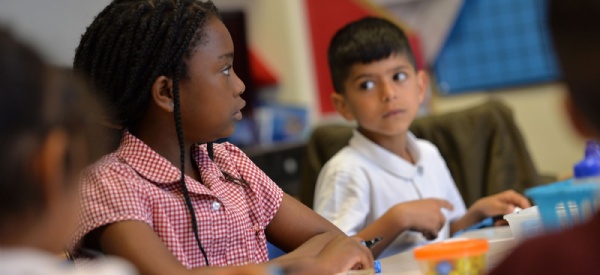Closing learning gaps through research

Education research can help teachers to close students’ learning gaps caused by the coronavirus pandemic, says the head of the Bradford Research School.
A recent report by The Sutton Trust painted a worrying national picture about varying levels of home support for pupils, inequalities with access to devices and a growing attainment gap amongst less affluent state schools.
The report found that 19% of parents overall reported their children did not have access to a device suitable for their online learning, a figure that rose to 35% for households with the lowest incomes.
It also concluded that most teachers (84%) thought the COVID-19 lockdown and associated disruption would increase the attainment gap, with a third (33%) saying it would increase substantially.
Now the team at the Bradford Research School are responding to this education emergency by analysing all of the available evidence in order to provide schools in the district with proven techniques for minimising the adverse effects on pupils.
“There are three main approaches worth considering,” explains Research School Head Mark Miller.
“First, we’d recommend looking closely at where the gaps are now and building a detailed picture of your own context - we can’t make any assumptions. At the same time, look at things that can be done right now in terms of narrowing the digital divide and increasing the effectiveness of remote learning.
“Finally, we’re doing some work around looking to the future and working out the best ways to close the gap that we know is emerging. Research evidence can help to support our decision-making at all stages.”
“What’s clear from studies carried out by the Sutton Trust and others is that the pandemic has further entrenched educational inequality, and one place that is now clear is in the digital divide.
“We’re finding that the lack of devices combined with an increasing requirement to participate in either live or recorded lessons means that this second lockdown is even more difficult for some families that the first.”
Mark points to findings by the Education Endowment Foundation (EEF), which conclude that the current level of school closures is likely to eradicate a decade’s worth of work in closing the schools equality gap.
“Where research can help us right now is in thinking about remote learning and the evidence around that,” he says.
“What really comes through strongly is that it’s not about whether a school delivers live lessons or remote lessons, it’s about making sure that the core elements of effective teaching are present within the lessons.
“Whatever approach is being taken there needs to be a focus on clear explanations, well designed scaffolding and effective feedback. The current research shows very clearly that these are far more important than how or when the lessons take place.”
Other areas where the evidence is strong, according to the Research School team, include self-regulation, meta-cognition and motivation.
Schools should be encouraged to send messages to parents around how they can support these aspects of teaching even if they’re not able to support the academic elements of lessons.
“What they can do is create the right conditions – for example giving prompts around learning or setting out timetables,” says Mark.
“Schools can help too, by providing checklists to help families work through some of the challenges of remote learning and even built prompts into their recorded lessons that are quite specific about what pupils need to do.”
As well as the work of the Research School locally, school leaders can tap into a range of tools, resources and evidence surveys on the EEF website or via the Bradford-based Centre for Applied Education Research (CAER), which hosts a regular monthly webinar for school leaders.
Mark concludes: “What the pandemic has done is put us in a really difficult place where we can’t necessarily rely on tried and tested approaches. Nor should we rush in to quick-fix solutions and rip up everything we have done before.
“We are, to a large degree, in the dark and a lot of us are having to make quicker decisions, implement changes at pace and do things that we’re not trained for – so having an evidence base we can use to influence our decisions is critically important.”
Useful Resources and Reading |
